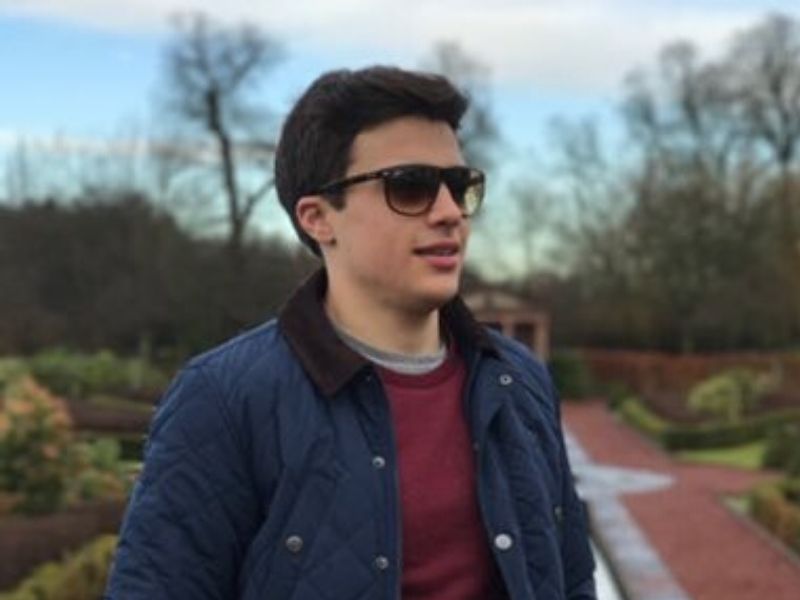The young lawyer who appeared on the defence team of suspected criminal mastermind Yorgen Fenech within 24 hours after resigning from the Attorney General’s Office is facing potentially gruelling proceedings before the Committee on Advocates and Legal Procurators, which is headed by former Chief Justice Vincent De Gaetano.
The sudden change of job of Charles Mercieca led the family of assassinated journalist Daphne Caruana Galizia to call for an urgent investigation, saying the timing of his transition “points to collusion between Fenech’s defence team and a serving criminal prosecutor”.
It also made a formal complaint to the Commission for the Administration of Justice. Its functions include investigating the judiciary and lawyers for misconduct.
The Committee on Advocates and Legal Procurators is a subcommittee of the Commission. It is led by former European Court of Human Rights Judge De Gaetano who was appointed last March in a move designed to reinvigorate the committee and its decisions.
Its functions are similar to that of the civil courts and it also has powers of subpoena, even though its proceedings are less formal and held behind closed doors.
It usually initiates proceedings against lawyers upon a complaint being filed to the Commission for the Administration of Justice. However, an investigation can also be triggered at the request of the Chamber of Advocates.
The highest form of sanction it can impose is the revocation of a lawyer’s warrant.
Although the complaint filed by the Caruana Galizia family has not been made public, it is understood that it invokes some of the general principles of the Code of Ethics and Conduct for Advocates, including clauses about a lawyer’s “integrity”, the reputational effect of his actions on “the advocate’s profession”, “proper standard of work” and “duty to the court”.
Legal experts believe the Committee will look into the specific details of Mercieca’s case before forming an overall judgement.
The complainants are thought to have alleged possible breaches of two overlapping clauses. One, in particular, focuses on lawyers who, in their obligations to particular clients or parties, act in any way that is “fraudulent, deceitful or otherwise contrary to the proper exercise of the profession” or “use their position as advocates to take unfair advantage either for themselves or another person”.
The fact that Mercieca appeared in court for Fenech, who is charged with complicity in Caruana Galizia’s murder, just one day after he resigned from the Attorney General’s Office led to suspicions that he had been negotiating his new role while he was working at the Attorney General’s office.
If this is the case, the question is whether he used his position at the Attorney General’s Office to derive an “unfair advantage either for (himself) or another person”.
The other relevant clause specifies that “if an advocate has acquired relevant knowledge concerning a former client during the course of acting for that client, the advocate must not accept instructions to act against the client”.
This is a bit of a grey area. There have been lawyers in the past who worked at the Attorney General’s Office and then moved to private practice, defending clients in the criminal court. It could be argued that these lawyers had gained knowledge of the workings of the Attorney General’s Office, as well as the style of particular lawyers, which then gave them insight or advantage on how to defend their clients.
But in this case, timing and visibility are crucial. In this case, it is a lawyer who worked at the Attorney General’s Office and now joined the legal defence team of a high profile case being mounted by his former office.
In his defence, Mercieca has stated that he was not involved in the Fenech case when working for the Attorney General. Yet questions have been raised in legal circles as to whether he had access to the file, or even the opportunity, which would have offered insight into the strategy of the Attorney General’s legal team.
The Committee has had to grapple with similar cases in the past. One involved a lawyer investigated for representing a client in a lawsuit against a government entity for which he used to work as a legal advisor. Even though time had elapsed until the lawyer took on his client, he still faced a tough grilling by the committee.
The Committee’s President De Gaetano has made outstanding contributions in judgements on conflict of interest during his tenure at the European Court of Human Rights.
Proceedings against Mercieca are likely to take considerable time given that witnesses may need to be heard. There is also a backlog of cases before the Committee, which has for many years been left short of the resources it needs to conduct expeditious proceedings.












